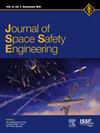Ionospheric GPS-VTEC forecasting using hybrid deep learning model (LSTM-CNN)
IF 1.7
Q3 ENGINEERING, AEROSPACE
引用次数: 0
Abstract
Predictions of the ionosphere are essential for detecting anomalies in space weather conditions. Deep learning technologies applied to ionospheric forecasting have emerged as an exciting field of focus for researchers. This paper presents the forecasting of GPS-VTEC using multilayer perceptron (MLP) and the deep learning model: long short-term memory (LSTM), gated recurrent unit (GRU), and a hybrid model composed of LSTM and a convolutional neural network (CNN). The MLP and the deep learning model are constructed with the GPS-vertical total electron content (GPS-VTEC) time series data estimated over a mid-latitude HUGE Station () located in Germany. Factors that influence the variations of GPS-VTEC are identified and used as the input parameters for the deep learning model. The factors are seasonal variation, diurnal variation, magnetic activity, and solar activity. The training is carried out using the data obtained from the years 2010–2014, while the prediction performance of the model is evaluated using the data from the year 2015 (high solar activity). The hybrid LSTM-CNN model performs better than the MLP and the other deep learning model, with a root mean square error (RMSE) of 3.046 total electron content unit (TECU) and a correlation coefficient (R) of 0.896 and is able to capture the diurnal variations of the GPS-VTEC. In addition, the prediction performance of the MLP and the deep learning model is compared with that of IRI-Plas 2017 and NeQuick-2 in capturing the seasonal variation of GPS-VTEC, and it is observed that the IRI-Plas 2017 model provides more accurate predictions than the MLP, the deep learning model, and the NeQuick-2 model during March 2015. However, on average, the deep learning model, the MLP, and the NeQuick-2 model capture the seasonal variations more accurately than the IRI-Plas 2017 at this GPS station.
基于LSTM-CNN混合深度学习模型的电离层GPS-VTEC预测
电离层的预测对于探测太空天气条件的异常是必不可少的。应用于电离层预测的深度学习技术已经成为研究人员关注的一个令人兴奋的领域。本文利用多层感知器(MLP)和深度学习模型:长短期记忆(LSTM)、门控循环单元(GRU)以及LSTM和卷积神经网络(CNN)组成的混合模型对GPS-VTEC进行预测。MLP和深度学习模型是利用德国一个中纬度HUGE站(47.834oN,7.596oE)的gps -垂直总电子含量(GPS-VTEC)时间序列数据构建的。确定了影响GPS-VTEC变化的因素,并将其用作深度学习模型的输入参数。这些因素包括季节变化、日变化、地磁活动和太阳活动。使用2010-2014年的数据进行训练,使用2015年(太阳活动高)的数据评估模型的预测性能。LSTM-CNN混合模型表现优于MLP和其他深度学习模型,其均方根误差(RMSE)为3.046总电子含量单位(TECU),相关系数(R)为0.896,能够捕捉GPS-VTEC的日变化。此外,将MLP和深度学习模型与IRI-Plas 2017和nequick2模型在捕获GPS-VTEC季节变化方面的预测性能进行了比较,发现IRI-Plas 2017模型在2015年3月期间的预测精度高于MLP、深度学习模型和nequick2模型。然而,平均而言,深度学习模型、MLP和NeQuick-2模型比该GPS站的IRI-Plas 2017更准确地捕捉到季节变化。
本文章由计算机程序翻译,如有差异,请以英文原文为准。
求助全文
约1分钟内获得全文
求助全文
来源期刊

Journal of Space Safety Engineering
Engineering-Safety, Risk, Reliability and Quality
CiteScore
2.50
自引率
0.00%
发文量
80
 求助内容:
求助内容: 应助结果提醒方式:
应助结果提醒方式:


